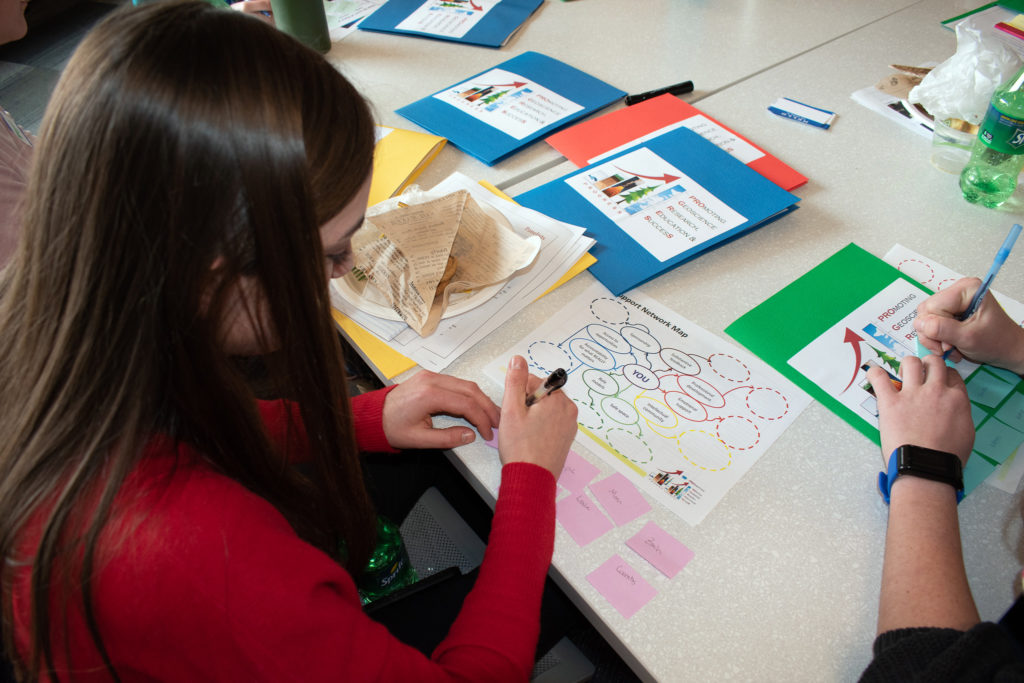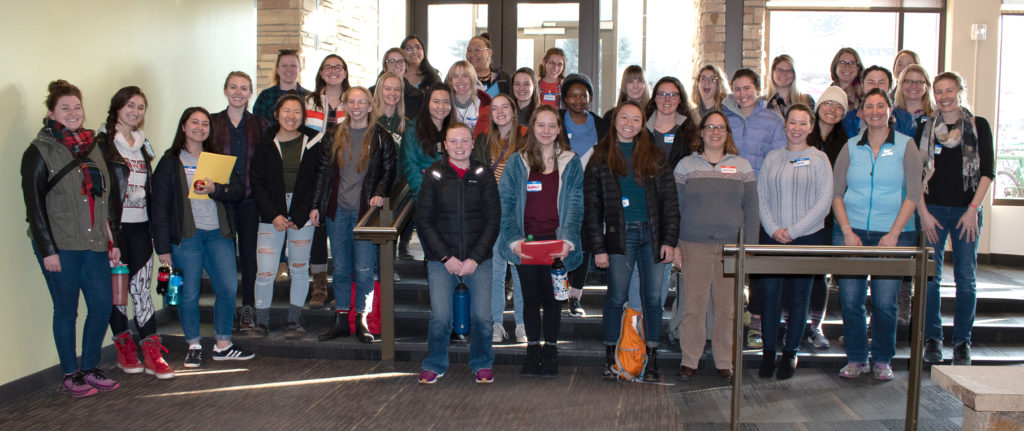
The geosciences don’t look like they did several decades ago, and decades from now they’ll look different than today. Scientific advances along with a greater diversity of scientists have strengthened the field, and improving the latter will lead to more of the former. That’s the ultimate goal of a $3.5 million National Science Foundation project led by Colorado State University researchers Emily Fischer and Melissa Burt.
Through their work on PROGRESS, a program for PROmoting Geoscience Research, Education and Success, Fischer and Burt proved that mentoring is key to retaining undergraduate women in STEM fields. The mentoring program they created helped students by increasing their science identity and sense of belonging.
“Given that it works, we need to make a scalable version, so we can offer this kind of mentoring program to as many women as possible,” said Fischer, an associate professor in the Department of Atmospheric Science.
Their most recent study, published in Nature Communications Earth & Environment, identified three essential components for a successful mentoring program: inspiration through exposure to geoscience careers via women role models, inoculation through training on how to grow their mentor network and overcome obstacles, and an introduction to a local female geoscientist mentor.
Building networks
“Without those three components, the students don’t build mentoring networks with multiple mentors,” Fischer said. “And without doing that, they don’t build their science identity as effectively, they’re not able to cope as effectively, and they don’t have as strong intentions to persist.”
“They also don’t develop a sense of belonging, which is pertinent at this stage of their career,” added Burt, who is assistant dean for diversity and inclusion in the Walter Scott, Jr. College of Engineering.
Distilling these three critical ingredients will allow PROGRESS coordinators to scale up the program to serve students across the U.S. The NSF grant will enable Fischer and Burt to expand the program dramatically, while still testing some details.

The first iteration of PROGRESS served between 300 and 400 students along the Front Range and in North and South Carolina. The five-year NSF expansion will cover around 2,000 students and include minority-serving institutions in new regions, such as Georgia and Texas.
In this new phase of PROGRESS, Fischer and Burt want to make sure women of color have equitable access and benefit from the program, an aspect they weren’t able to study in Front Range schools.
“We heard from some students of color who participated on the Front Range that more students of color would have created a space that focused on not just being a woman but also the intersection of identities,” Burt said. “In this new phase, we intentionally sought out regions with greater diversity of students to ensure that intersectionality is also a topic of conversation.”
The expansion effort will be based at CSU, which will receive $1.2 million of the overall $3.5 million grant. Collaborators will participate in training here, and experienced PROGRESS coordinators will travel to the partner schools to facilitate kickoff workshops for their first cohort of students.
Broadening the scope
In two years, when the partner institutions are ready for their second cohort of students, they will implement the program independently but with support from the original PROGRESS organizers. Ideally, the institutions will carry the program forward after the NSF-supported phase concludes.
“It should make a difference in the education trajectories for a very large group of women across seven geographical regions, so that’s really exciting to me,” Fischer said.
“This will also make a difference for many students who are trying to make it from one semester to the next,” Burt said. “Many of us have been there, and the support network that we’ve created for our cohort really changes their experiences.”
The very reason PROGRESS is needed – the underrepresentation of women in geosciences – complicates its expansion. For the first time in the program’s history, PROGRESS will incorporate men as mentors.
Fischer does not expect this to hinder their mission. The goal is for women STEM students to grow a diverse mentoring network, and the initial introduction to a mentor, regardless of their gender identity, should facilitate that.
To expose female geoscience undergrads to more women in STEM, PROGRESS coordinators will introduce them to both local and virtual panelists at workshops.
Expanding the overall PROGRESS network will lead to the expansion of personal networks and, eventually, a new generation of diverse and inclusive scientists, from which society as a whole will benefit.
“Making sure our fields are as diverse as possible is essential to solving the challenging problems we face,” Fischer said. “Without a more diverse set of scientists working on problems, we run a risk of not serving society as well as we could.”
On Sept. 4, the PROGRESS program was named to the shortlist of finalists for the Nature Outreach Inspiring and Innovating Science Award. The award recognizes initiatives that support girls or young women to engage with, enjoy and study STEM subjects or to increase the retention of women in STEM careers. Finalists have “shown exceptional vision, insight and/or imagination and demonstrated that they encourage, support or promote the interest of girls and/or women in STEM.” The winner will be announced in October.